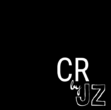Ever get to an interview stage of a job and have no real idea how to properly prepare? This was me when I first started this process. Through countless permutations of preparing and not preparing for clerkship interviews, I discovered that there was such a thing as too much preparation. Don’t get me wrong – some preparation definitely helps, but over-preparing can dampen your mental strength and enthusiasm.
There is such a thing as too much preparation
To find the perfect sweet spot, here are some tips I recommend you consider in the preparation and execution of your clerkship interview. These split into three main bases: knowledge of your written application, insight into your interviewers and a list of pre-prepared questions.

Knowledge of your written application
One thing I did not anticipate in my first clerkship interview was how often the interviewer referred to my written application. Dispel the expectation of being asked an endless string of legal and behavioural questions (as seen in many Big 4 Audit firm interviews) and focus on really understanding your background and application. Sure, in the first round interview you may get 2 or 3 behavioural questions as HR is often in attendance, but the focus remains on what you have experienced, law subjects you enjoyed and other unrelated passions you may have.
Priority 1: Resume
The one thing you should know back-to-front before the interview is your resume. This does not just mean remembering your role title. Have a proper look into each experience and be prepared to talk at length on interesting projects you’ve worked on, tasks you were assigned and responsibilities you had in that position. Be sure to really cover everything – I was asked about my first job, other short term roles in hospitality and minor extracurricular activities I had briefly included in my resume to fill space.
Priority 2: Strengths
You need to know what makes you stand out from others. Take a good look at your resume, cover letter and your transcript. There is always something you have that others do not. It could be your exchange, university commitments or the time you wrote an academic paper. Prepare so that you are ready to recall these experiences in a moment’s notice. You cannot expect the interviewers to figure out how impressive you are if you don’t know them yourself.
Priority 3: Cover Letter and Written Responses
While it is of a lesser priority, you should also briefly familiarize yourself with your written responses. In some instances, I have had interviewers quote lines from my written application and ask what I meant. In other times, the interviewer had asked me the same question I had answered in my written application – which would have been awkward if I had answered completely differently. Being prepared to also briefly talk about your written responses would be beneficial.

Insight into your interviewers
Your interviewers are normally a mix of Partners, Senior Lawyers and HR Managers. As most firms send you details of your interviewers a few days before your interview, why not take advantage of this and learn a bit more about them? Becoming familiar and comfortable with your interviewers before you enter the room can help break the nerves and ensure that you remain confident and composed.
Almost every clerkship candidate understands that this is an important part of preparing, but how do you ensure you are not wasting time? A few things to cover include their interviewing style, the type of questions they might ask and any mutual interests that may exist.
There are a number of avenues you can use to read up on your interviewers:
-
Firm Website: this is a great resource to find out about matters that the Partner or Lawyer has worked on so you can ask them about their experiences in the interview.
-
Coffee Catch ups: meet up with your buddy before the interview to ask about the interviewer, their interviewing style, what they enjoy doing outside of work and any interesting deals they have worked on
-
LinkedIn: chances are, they all have it. The beauty of LinkedIn is that it shows their career path and any other interests they may have. This information is a great conversation starter to use in the interview. If they have a profile picture, it is also a helpful way to remember their names at the interview (especially if you have multiple interviewers).
LinkedIn tip: While most students prefer to keep their LinkedIn private while ‘stalking’ these interviewers, keep your LinkedIn on public. It sends a clear signal to your interviewer that you have been preparing if they get a notification that you have viewed their profile.

A list of pre-prepared questions (and answers)
Many students often overlook the importance of asking insightful questions throughout the interview. In fact, the questions you ask need to be equally as genuine and enthusiastic as your answers. Insightful and appropriately timed questions show excitement and passion, which will definitely help you stand out from the other candidates.
Prepare a few interesting questions to ask your interviewers. Make sure they are not overly generic and cover topics that you are genuinely interested in. A few questions that have been used to illustrate my interest delved into recent trends in technology, competitors in the market and overseas experiences that the interviewer has had. To make the interview a bit more conversational, have some answers prepared for those very same questions. It is a great way to acknowledge what they have said while presenting your own unique perspectives on the topic. This not only shows initiative and that thought has been put into these questions, it also provides an opportunity for you to show them how you think and respond to modern problems.
While interesting questions are useful to generate debate and discussion, do not discount the value of emotive questions. That is, questions that seek an emotional response from the interviewer. Having one or two simple questions prepared like “what do you love the most about your job?” gives the interviewer an opportunity to reflect and talk about themselves. The more the interviewer talks about themselves, the better they feel, and this will reflect positively in your assessment.
Best of Luck! On more tips on how to perform on the big day, read this article.

